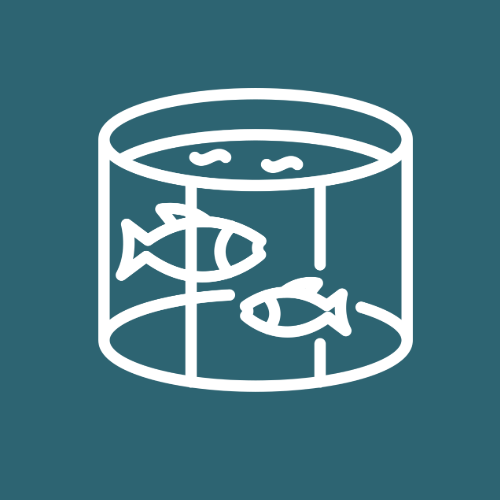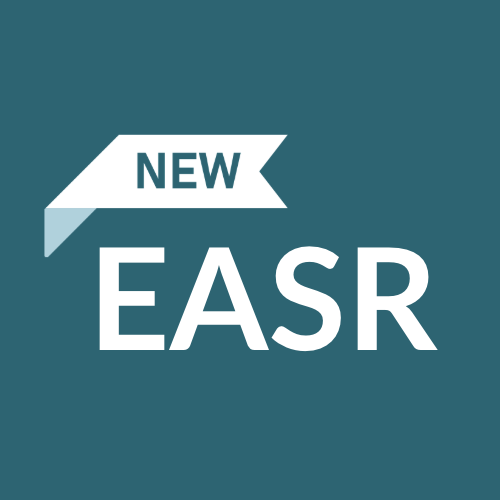Permitting applications
Finfish aquaculture: Advertised applications under the Water Environment (Controlled Activities) (Scotland) Regulations 2011
Advertised applications under the Water Environment (Controlled Activities) (Scotland) Regulations 2011
Open consultations
-
Planning webpages - user experience survey
As part of a SEPA-wide website modernisation, our planning webpages are being updated later this year. To assist with this, we are seeking feedback on the user experience of our current webpages . We are specifically looking for feedback on how stakeholders use our planning webpages, how useful and easy to navigate they are, as well as any specific improvements that could be made to improve the...
Closes 9 March 2026
-
PPC/A/5011881 - Scott Eggs Limited: Howden Farm, Gifford - PPC Permit Application
It's part of SEPA’s remit to maintain a high-quality environment by setting permit conditions which limit the impacts associated with installations operating under Pollution Prevention and Control (PPC) Part A regulations. Application details We received an application from Scott Eggs Limited for a permit to operate an installation at Howden Farm, Gifford, East...
Closes 13 March 2026
-
APP2025-00000063 - MOWI Scotland Limited - Tabhaigh East MPFF - EASR Application
SEPA is one of a number of organisations regulating finfish aquaculture. Anyone who operates a fish farm must have an authorisation from SEPA, under The Environmental Authorisations (Scotland) Regulations 2018 (EASR). When we receive an application for a new fish farm or to modify the operation of an existing fish farm, as part of our determination we will consider the risks to the water...
Closes 20 March 2026
-
PPC/A/1110002 - Viridor (Glasgow) Limited: Glasgow Recycling & Renewable Energy Centre, 425 Polmadie Road, Glasgow, G42 0PJ - PPC Variation
It's part of SEPA’s remit to maintain a high-quality environment by setting permit conditions which limit the impacts associated with installations operating under Pollution Prevention and Control (PPC) Part A regulations. Application details We received an application from Viridor (Glasgow) Limited to vary their existing PPC permit PPC/A/1110002 for the Glasgow...
Closes 23 March 2026
-
CAR/L/5010728 - Loch Kemp Storage Limited; Loch Kemp Storage, Easter Drummond, Whitebridge, Inverness, IV2 6UP
It is part of our remit to protect the water environment. We regulate through authorisations that limit the scope and scale of the activity. If you have an interest in this application, please tell us by completing the following questions and submitting them to us by 26 March 2026. Application details We received an application from Loch Kemp...
Closes 26 March 2026
Closed consultations
-
APP2025-00000085 - Aberdeen & Northern Eggs Ltd: Pitfour Rearing Farm, Nr Mintlaw - EASR Application
Anyone who carries out an industrial activity under The Environmental Authorisations (Scotland) Regulations 2018 (EASR) must have an authorisation from SEPA. When we receive an application for a new industrial activity or to modify an existing industrial activity, as part of our determination we...
Closed 3 March 2026
-
River Basin Management Planning in the Solway Tweed
This Significant Water Management Issues report (SWMI) summarises the issues that SEPA and the Environment Agency consider to be significantly impacting on our shared water environment in the Solway Tweed river basin district. It is an important step in the review and update of river basin...
Closed 3 March 2026
-
Safeguarding Scotland’s Water Environment
Scotland’s water environment is one of our most valuable natural assets. It supports wildlife, contributes to health and wellbeing, and underpins sustainable economic growth. This environment sits within a complex landscape of towns, cities, farmland, forests, and industry. Protecting...
Closed 3 March 2026
-
UK Emissions Trading Scheme (UK ETS) Charging Scheme Consultation - Maritime Operators
We are asking for your views on our proposed amendments to our UK Emissions Trading Scheme (ETS) Charging Scheme- the Greenhouse Gas Emissions Trading (Scotland) Charging Scheme 2025 (the ETS Charging Scheme). These proposed amendments will be particularly relevant to operators within the...
Closed 24 February 2026
-
PPC/A/5012043 - Sypland Glen Eggs Limited: Sypland Glen Free Range Egg Farm, Kirkcudbright - PPC Permit Application
It's part of SEPA’s remit to maintain a high-quality environment by setting permit conditions which limit the impacts associated with installations operating under Pollution Prevention and Control (PPC) Part A regulations. Application details We received an...
Closed 13 February 2026
We Asked, You Said, We Did
Here are some of the issues we have consulted on and their outcomes. See all outcomes
We asked
For your views on our proposed Environmental Performance Assessment Scheme (EPAS), which will provide a consistent way to assess environmental performance and support improvements in compliance.
You said
We received 73 responses. Most respondents understood and supported the proposals, including the principles of the scheme.
We did
We considered your feedback carefully and made several changes to strengthen and clarify the scheme. Our 'we asked, you said, we did' document summarises what you told us and the actions we’ve taken. Where permission to publish has been provided, the indvidual consultation responses are now available to view online.
We asked
In January 2025 your views on proposed changes to enhance the opportunities for public participation and review SEPA’s Fit and Proper person test in line with the Environmental Authorisations (Scotland) Regulations 2018.
In the consultation we wanted to gather views on:
1. Proposed changes to the SEPA guidance on public participation by adding a requirement for prospective applicants to engage in public consultation at the pre-application stage in the Public Participation Statement.
2. Proposed changes to the SEPA guidance on the criteria we will apply in determining whether a person is a fit and proper person to hold a registration or permit (‘Guidance On Who Can Hold an Authorisation: ‘In Control’ and ‘Fit and Proper Person’ Tests’).
The consultation was open from 6 January 2025 to 31 March 2025.
You said
In total, we received 55 responses to this consultation.
Overall the response to both questions was positive and in favour of the changes proposed.
Responses agreed with adding pre-application engagement to some permit applications and provided suggestions as to how best an applicant could fulfil this requirement.
On the Fit and Proper person test, responses agreed with changes around asking applicants for non environmental convictions
We did
We carefully considered your feedback and made several changes to our guidance on public participation and the fit and proper person test.
The updated ‘Public Participation Statement’ and our guidance ‘On Who Can Hold an Authorisation: In Control and Fit and Proper Person are now available’.
We published a summary of these changes in our Consultation Digest (July 2025).
We asked
For your views on changes to SEPA charges for the marine fish farm sector to recover the costs of environmental monitoring to investigate the interaction between sea lice from marine fish farms and wild salmon and sea trout.
You said
We received 12 responses to the consultation. Respondents from the fish farming sector recognised that it was appropriate, in principle, for SEPA to recover the costs of sea lice-related monitoring from fish farm operators. They had several concerns about the details of the proposals and told us it was important that charges paid by fish farmers were exclusively for recovering the costs of monitoring sea lice interactions with wild fish (i.e. not other pressures); the monitoring must be more effective than existing monitoring; and, to avoid duplication and unnecessary costs, the monitoring must replace planning permission monitoring requirements. Most respondents from organisations involved in the conservation and management of wild salmon and sea trout told us that they supported the changes in charges and considered that the proposed monitoring programmes would be a significant improvement in how sea lice/wild salmon and sea trout interactions are monitored.
We did
We considered your feedback carefully. We agree with many of the points raised, including that the costs recovered are exclusively the costs of investigating pressure from sea lice from fish farms; the monitoring being carried out under planning permissions should be superseded; monitoring must be scientifically designed to best provide the evidence required; and advice from stakeholder advisory groups should be sought and considered in planning the monitoring for 2026 and beyond, reviewing results and adapting monitoring as appropriate. For points that we have not taken forward, we have explained why we consider the approach we proposed to be more appropriate. You can find information about our consideration of each of the points raised in our Consultation Digest.




